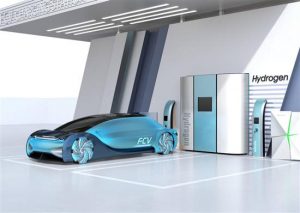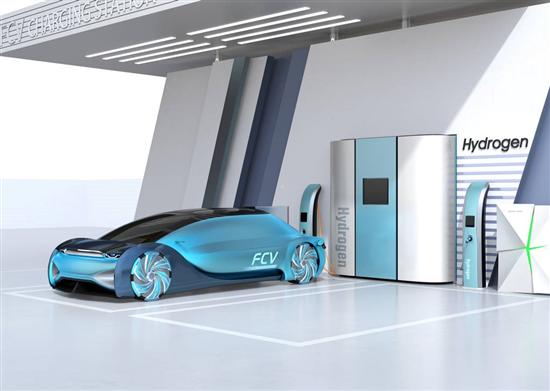In 2023, the national production and sales data of fuel cell vehicles were 5,548 and 5,405, respectively, which decreased by 10.4% and 12.6% year-on-year, interrupting the year-on-year growth trend of cumulative production and sales since 2021.
At the same time, globally, according to the data released by SNE Research, a Korean research institution, in 2023, the total sales volume of registered hydrogen fuel cell vehicles worldwide was 12,866, a decrease of 21.6% compared with 2023. In the same period, the sales volume of lithium battery electric vehicles reached 10.4 million, an increase of about 14% year-on-year.
Due to the advantages of greatly reduced battery cost, wide coverage of charging infrastructure, and high consumer acceptance, passenger car lithium battery electric vehicles have formed a complete product matrix and occupy a dominant position in the market. However, in the field of commercial vehicles, where hydrogen fuel cells have high hopes, the development does not seem to be going very well.
Mike Nakrani, CEO of VEV, who has participated in the joint venture project of Ford, Daimler and Ballard Power Systems and has personal experience in the development of hydrogen fuel cells for heavy vehicles, believes that hydrogen energy does not yet have the appropriate characteristics to adapt to the market.
He said that pure electric vehicles have won the competition in various market segments of passenger cars. At the same time, some pure electric vehicle products have entered the European market, and are not limited to small vehicles commuting in cities, medium and large family cars, SUVs and other models. Pure electricity has shown strong adaptability. Now, lithium battery electric vehicles are also expanding to 16 tons, 26 tons, 44 tons and even 264 tons of mining trucks. Customers can now buy heavy trucks equipped with batteries and use them for regular transportation routes.
Professor David Cebon of the UK’s Centre for Sustainable Road Freight Research believes that hydrogen fuel cell stacks are much less efficient than lithium-ion batteries, facing efficiency challenges in energy conversion and transmission. For example, 100 kWh of electrical energy is used to produce hydrogen by electrolysis of water, which is transported and stored in fuel cell vehicles. Only about 23% of the energy that is converted into hydrogen, stored, transported, and converted into electricity ends up being used efficiently by vehicles.
In contrast, for lithium battery electric vehicles, 100 kWh of electric energy will eventually have 69% effective energy for vehicles. It can be said that the efficiency of lithium battery is three times that of hydrogen fuel cell from power generation to vehicle delivery.
Of course, in addition to low efficiency, the storage of hydrogen is also one of the problems. If hydrogen is stored in gaseous form, a system tank that can withstand high pressure is needed to store hydrogen compressed to a small volume and high pressure. If we compare a tanker loaded with diesel oil with a specific energy, it takes at least 20 tankers loaded with hydrogen to achieve the same energy carrying capacity by using hydrogen storage mode compressed at 250bar. In other words, compared with diesel, under the condition of storing the same energy, the transportation efficiency of hydrogen is much lower, and more vehicles are needed to complete the same task.
If hydrogen is stored in liquid form, it needs to be frozen to 253 °C. Even so, <> equivalent tankers are still needed to provide the same energy consumption as diesel.
The third problem is transportation. Naklani pointed out that because of the high cost of hydrogen storage solution, it is extremely difficult to transport it from point A to point B at a competitive cost. Therefore, senior people in the truck market generally believe that hydrogen fuel cells may have certain applications, but the scope will be very limited. In the future, at least 80%-90% of the heavy truck market will be electric vehicles. At the same time, the narrow application field of hydrogen fuel cell will make its cost unable to reach the economic scale needed to solve the inefficient problem.
Choosing hydrogen energy is a convenient transformation choice for the oil and gas industry and fuel truck companies. Before supplying and using fossil fuels, now using green fuels can maintain the same business model and stabilize existing customers. They have every reason to hope that hydrogen can succeed. Among the current mainstream car companies, Toyota and Hyundai are still exploring the hydrogen energy route.
But at present, the future of hydrogen energy is still far away.
